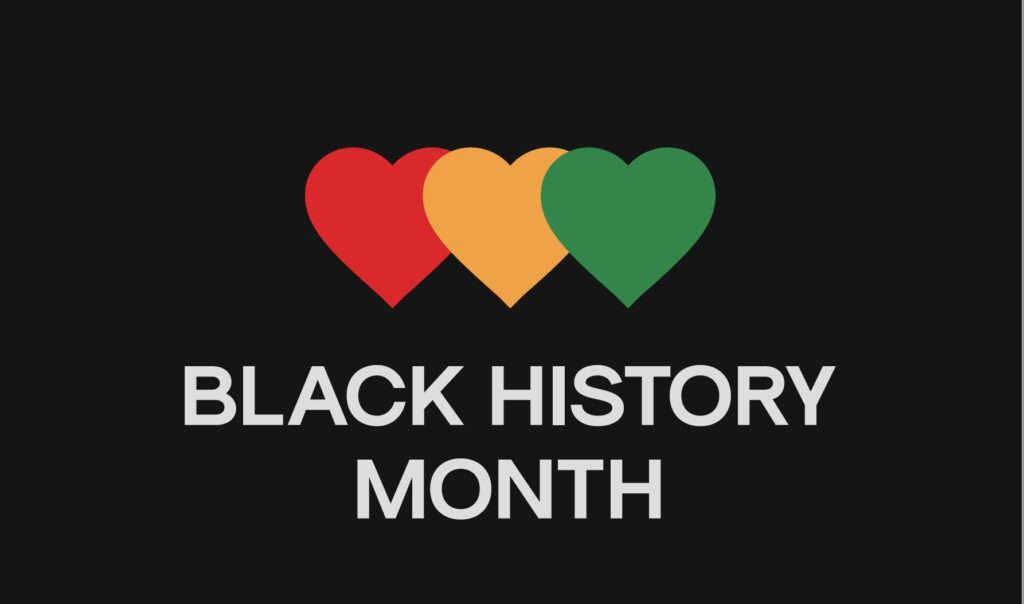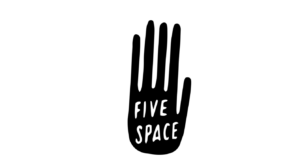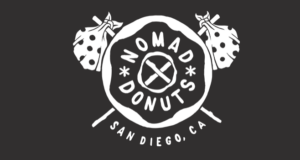Spotlight on Business For Good Black Voices

Black History Month affords us the opportunity to reflect on and commemorate the remarkable contributions the Black community has made throughout history.
The U.S. owes many of the advancements we all enjoy today to the talent of Black innovators in everything from medicine, science, and politics to civil rights, music, fashion, and culture.
Black-owned businesses are a major driving force in the entrepreneurial and cultural spirit of our nation. One of the top priorities of Business For Good is to help shape equitable policy that ensures the long-term success of Black and other underserved business ownership throughout San Diego County.
This month, Business For Good was honored to learn from several of our Black members what Black History means to them, how fellow business owners can support and elevate Black-owned businesses, and much more.

Erick Cohen // FIVESPACE
What does your business do?
FIVESPACE is a Black-owned record shop in North Park with a deep Hip Hop selection. In the store, you’ll find a variety of vinyl, cassettes, and select vintage wares.
What does celebrating Black History mean to you?
I surround myself with Black History (Hip Hop) because those stories need to be told. So much of society has been inspired by our music and culture. I’m doing my part to honor that by sharing that history with my customers every day.
What actions do you believe other local business owners can take to better support and elevate Black-owned businesses in San Diego (and beyond)?
Buying Black is always top-of-mind for me. Thinking long-term, local business owners who become business mentors to new Black-owned businesses or entrepreneurs could really change the game. Having someone with the business resources, knowledge, and connections to tap into is key for helping new Black entrepreneurs succeed.
What are some of your favorite Black-owned businesses and brands?
Every other Black-owned record store. We make up only 1% of all record stores in the U.S., so it’s important that we support each other.

Brad Keiller // Nomad Donuts
What does your business do?
Nomad is a donut and bagel bakery that offers gourmet donuts, bagels, bagel sandwiches, coffee, beer, and wine to our community. We also offer wholesale bagels to a number of cafes in San Diego. We work primarily with walk-in customers at our shop and businesses for wholesale bagels. We also have a food truck that is available to cater to offsite events.
What does celebrating Black History mean to you?
It’s an opportunity to share the wealth of contributions that Black people have made in this country and to humanity at large.
Please share with us a bit about your experience and journey as a Black business owner/entrepreneur in San Diego. What are you most proud of? What do you feel have been your biggest challenges?
I was born, raised, and educated in Canada. My move to San Diego from Toronto over 20 years ago was a big change. While Canada does have racial challenges, it’s not as segregated as the U.S. So the first thing I noticed when coming here was how few Black people—and especially Black entrepreneurs—I encountered in my day-to-day life.
While both Canada and the U.S. do present similar barriers to success for Black entrepreneurs, such as access to capital, issues with access to just about everything from education, business resources, and healthcare are pervasive in the U.S. in a way they are not in Canada.
I didn’t experience any challenges with regard to my education in Canada and was able to fund my education with part-time jobs and student loans. With subsidized education, I could finish my undergraduate degree and an MBA with minimal student loan debt that was paid off about four years after I graduated. That is my privilege.
I’m most proud of Nomad’s community involvement that reflects our stance on social justice issues.
Nomad’s biggest challenge has always been access to capital. Inadequate or underfunded capital is the leading cause of business failure in the U.S.
I’ve been underfunded at every turn by traditional lenders. I’ve done whatever it took to pull Nomad through, including multiple predatory loans—which we barely survived. At one point, I was months away from throwing in the towel on Nomad because of our debt and expenses.
Interestingly enough, the COVID-19 disaster relief funds were what finally gave us access to the capital we so badly needed for years. It put us on the track to long-lasting success.
What actions do you believe other local business owners can take to better support and elevate Black-owned businesses in San Diego (and beyond)?
The future is the key, and our youth is the future. That means the best thing we can all do is fight for equity in education, starting at the very earliest levels. The inequities in U.S. education today are still largely a function of redlining and segregation.
For those of us who have navigated our way to becoming entrepreneurs, we need support with access to capital and the promotion/advertising of available resources. Buying from Black-owned businesses helps too, but it is only part of the solution.
What are some of your favorite Black-owned businesses and brands?
- Coop’s West Texas BBQ and Chicken Coop. I love the food, and the owner Braderick is a great guy—and a fellow Brad!
- Rock Steady Jamaican. The food takes me back to the Caribbean community in Toronto and foods I enjoyed in my college days.
- Mya’s Catering. I’m really cheering for this one, as I mentor Amaya, the founder, through CONNECT ALL at the Jacob’s Center.
- Hammond’s Ice Cream. Their Chocolate Coconut Macadamia Nut is my favorite ice cream flavor ever. Also, the owner AJ is a great guy and their North Park shop is conveniently located across the street from Nomad.
- Shadow Ridge Spirits Company. Nomad did a collaboration Pina Colada donut with Shadow Ridge last year, and I really enjoyed the rum on its own. Unfortunately, I didn’t get to spend much time with the owner.
- Diop. They’re not local to San Diego, but their stylish and well-fitting masks got me through 2020 and 2021.
Katrina Oprisko // Earthwell Refill
What does your business do?
We are a product refill shop for all. Our customers come from all walks of life. Our goal is to make eco-conscious products accessible for everyone. We encourage our customers to bring their own empty containers to our store to refill them with our natural and organic products. We also offer plastic alternatives for many common household products such as toothbrushes, dish sponges, and shavers. We offer laundry detergent, dish liquid, shampoos, conditioners, body wash, lotions, toothpaste, and many more products.
What does celebrating Black History mean to you?
Black History is American History. By placing a spotlight on Black History, we acknowledge our existence and our many contributions to this country. This is ever so important now since there are some areas of the U.S. that are trying to rewrite or erase our history.
Please share with us a bit about your experience and journey as a Black business owner/entrepreneur in San Diego. What are you most proud of? What do you feel have been your biggest challenges?
I’m proud that we had the courage to open our business. Right now, our biggest challenge is keeping the shelves stocked. We sell a lot of bamboo products or products made from coconut-derived ingredients. Both of these products are sourced outside the U.S. so a lot of our vendors are having a hard time delivering with the many COVID-related supply chain issues.
What actions do you believe other local business owners can take to better support and elevate Black-owned businesses in San Diego (and beyond)?
I think by joining organizations like Business For Good and advocating for equitable solutions, business owners can support Black-owned businesses. It is encouraging to hear that our current City of San Diego administration is focusing on investing in neighborhoods south of downtown and east of the 8 freeway where many people of color reside. These actions will make San Diego a better place for all.
What are some of your favorite Black-owned businesses/brands?
We carry soaps from Wildflower Apothecary, a local Black-owned business. I am also happy to now see many organizations provide a list of Black medical professionals, especially in the field of women’s healthcare.

